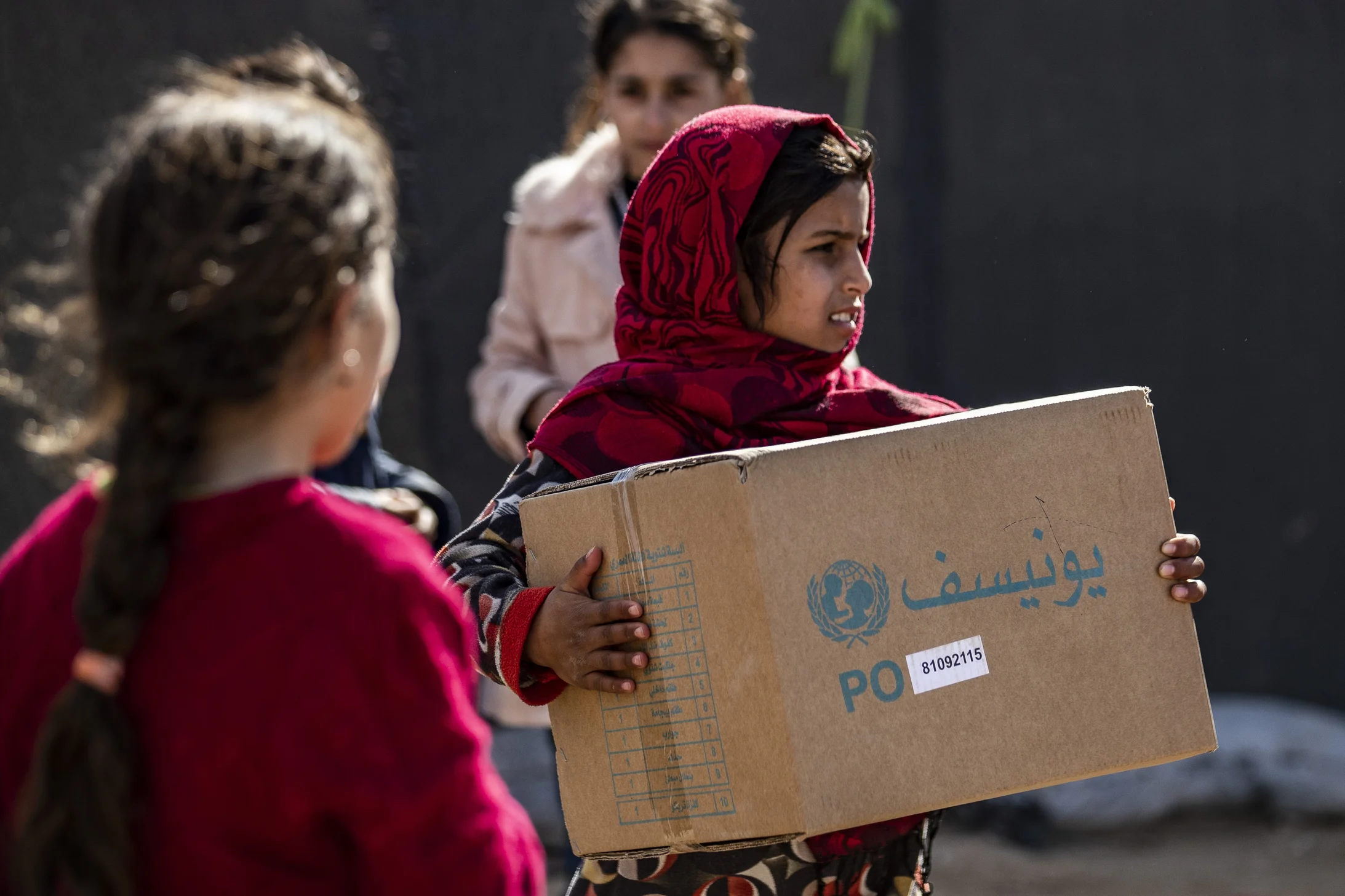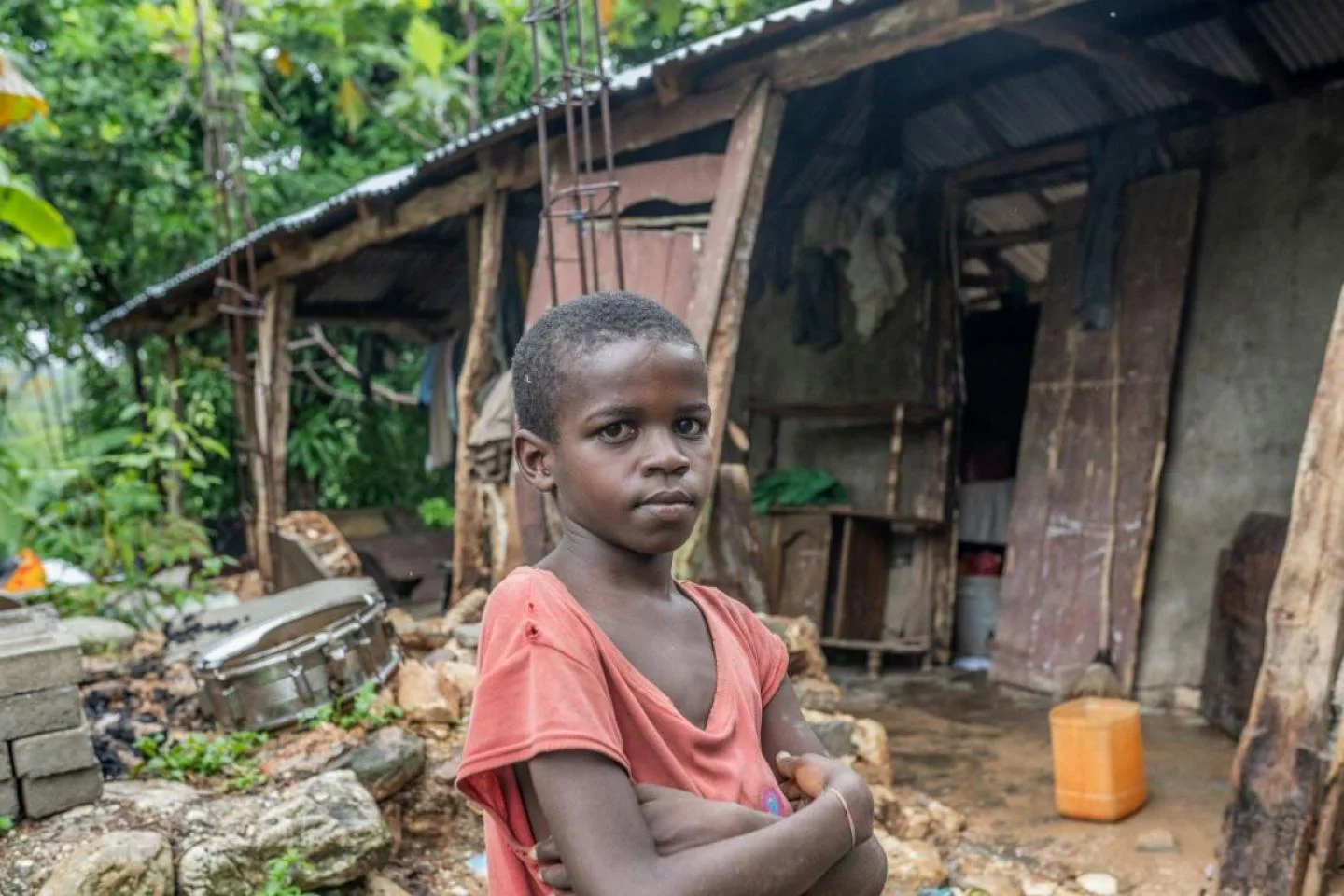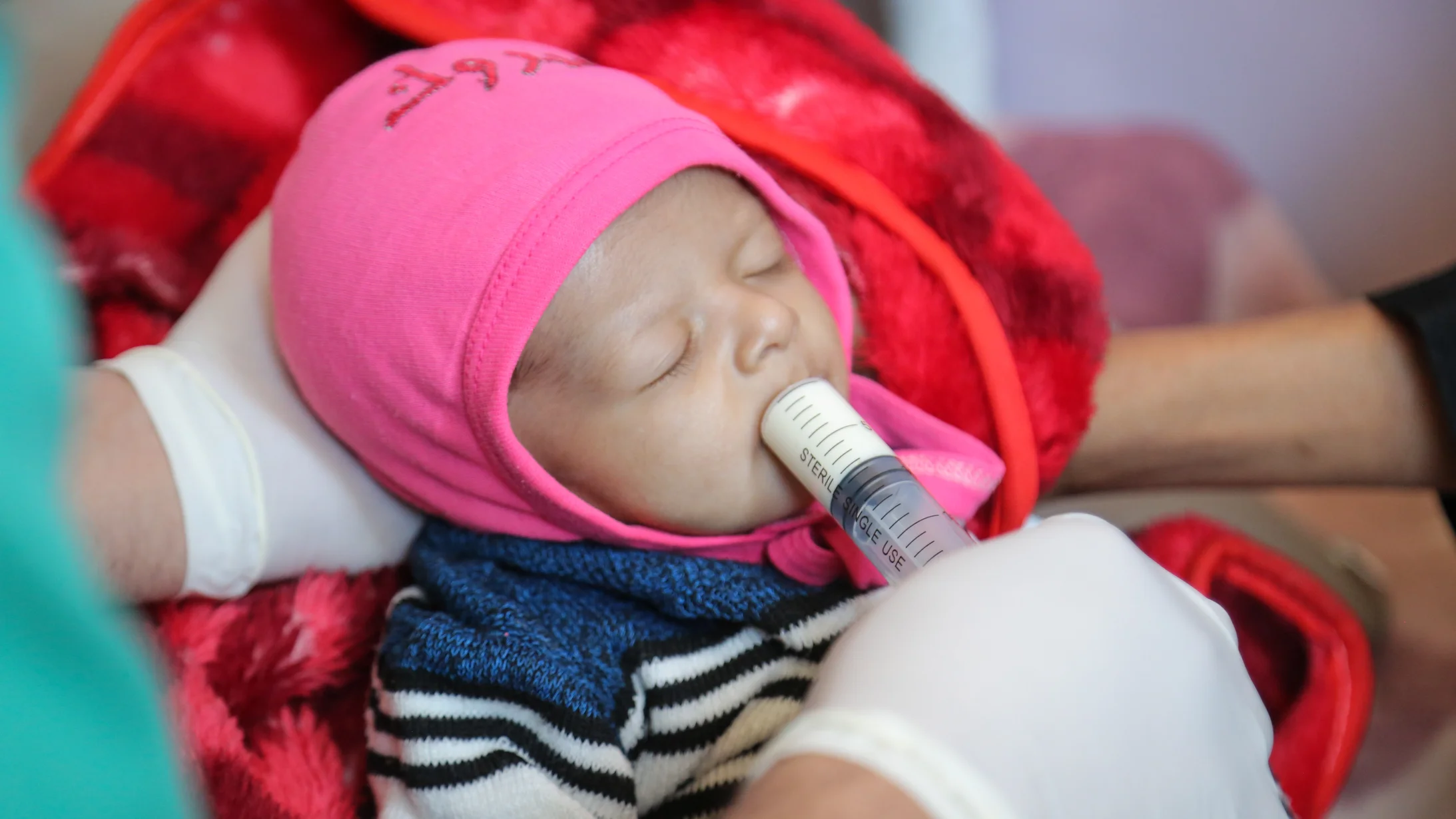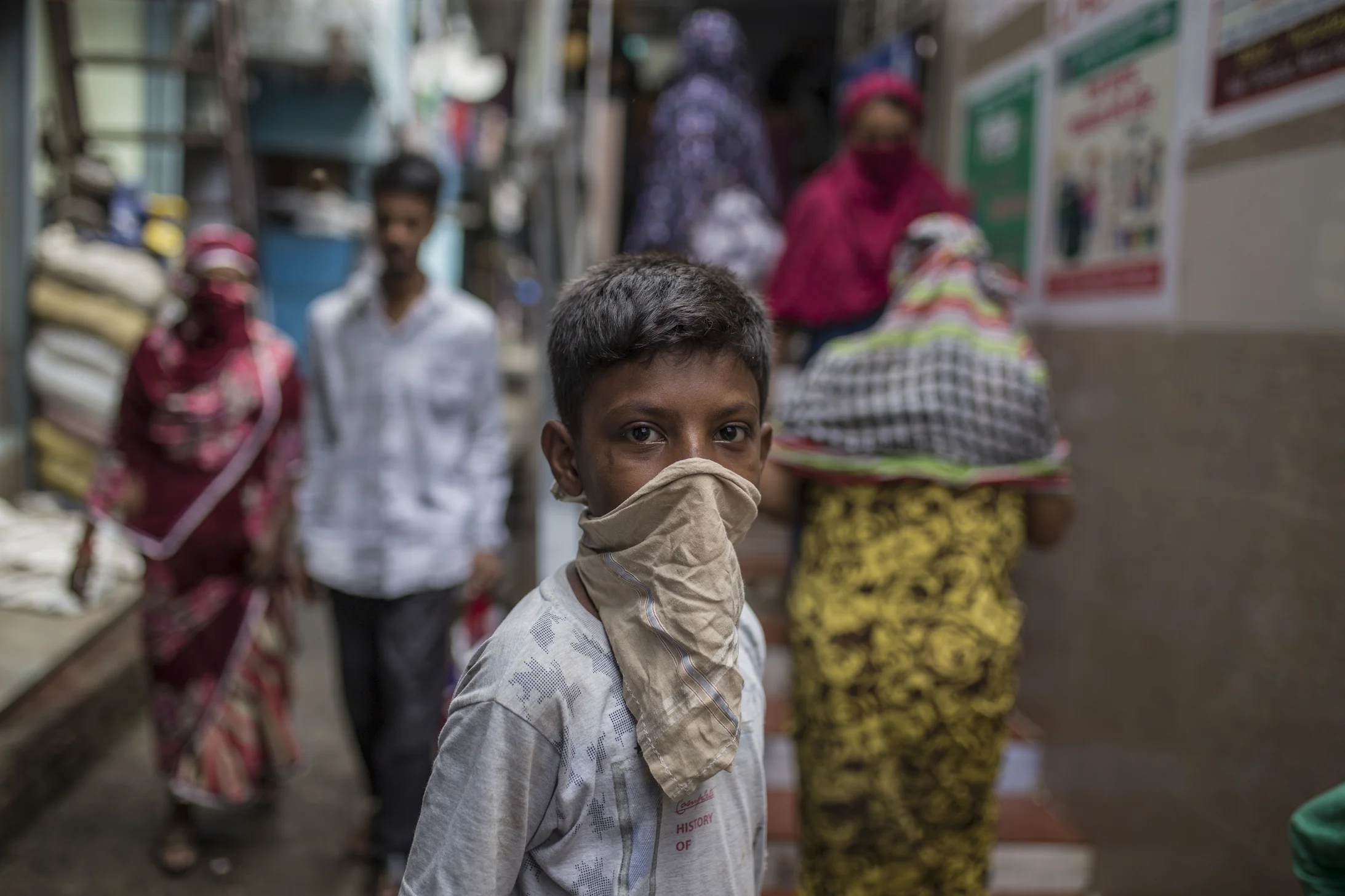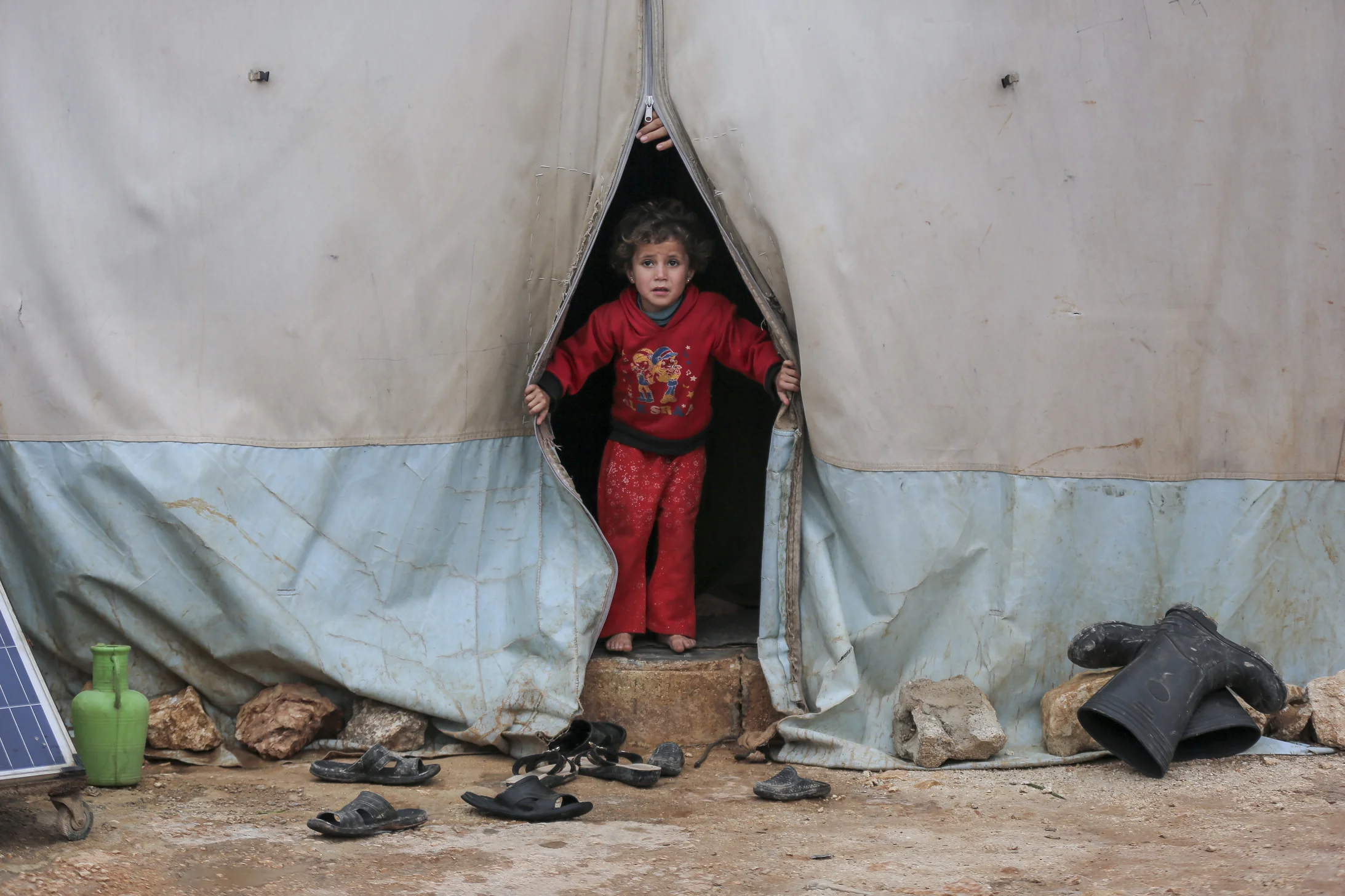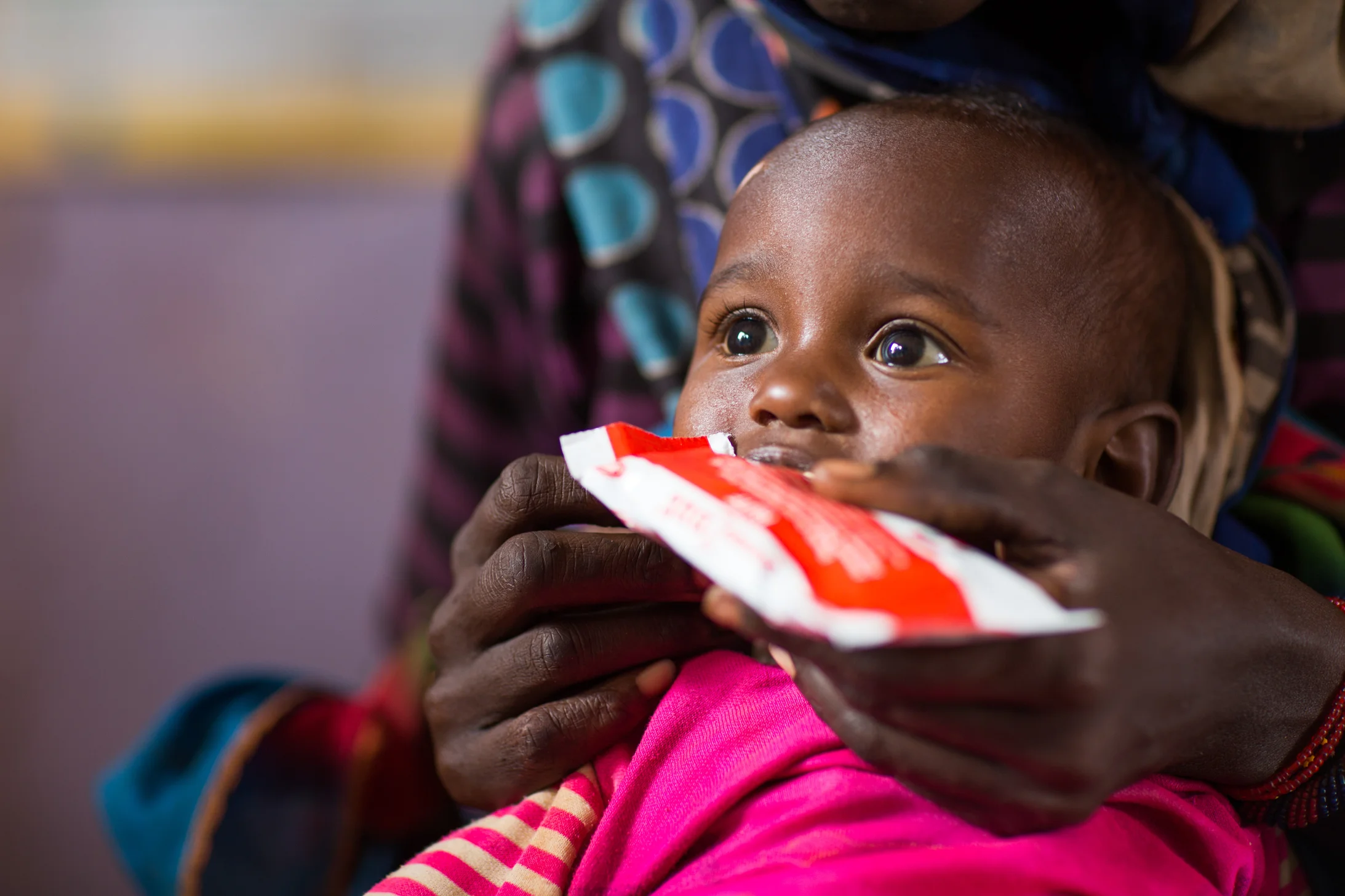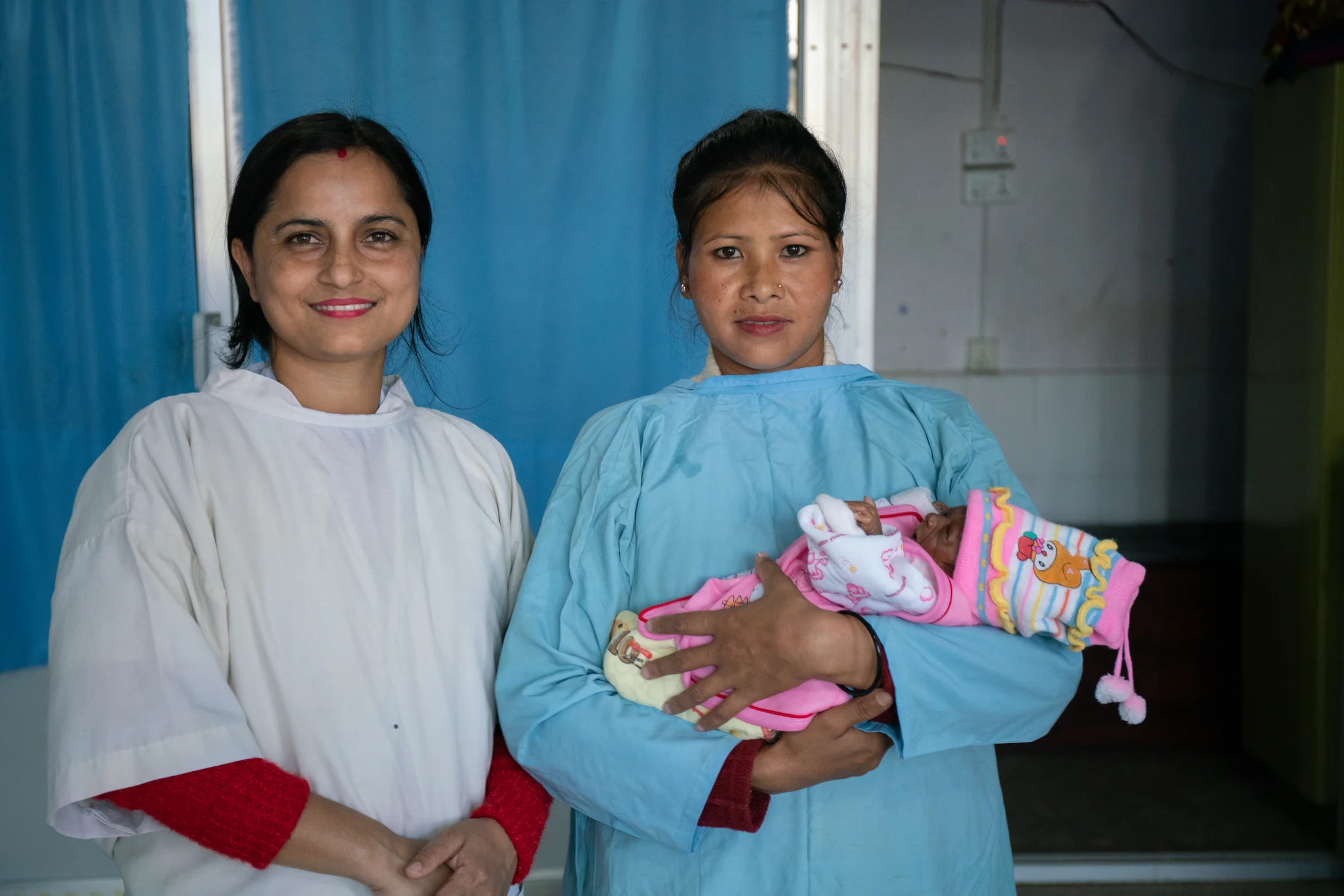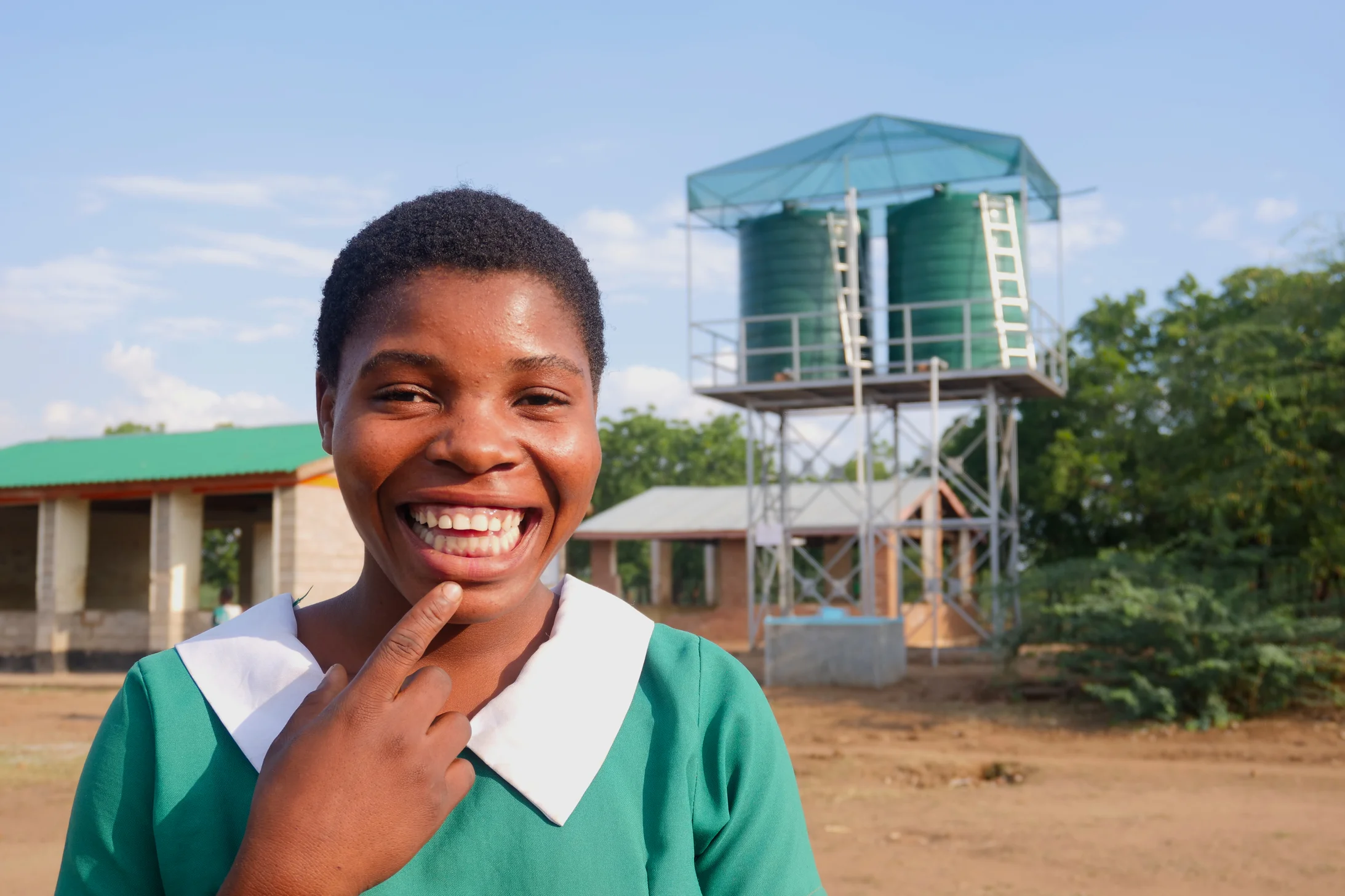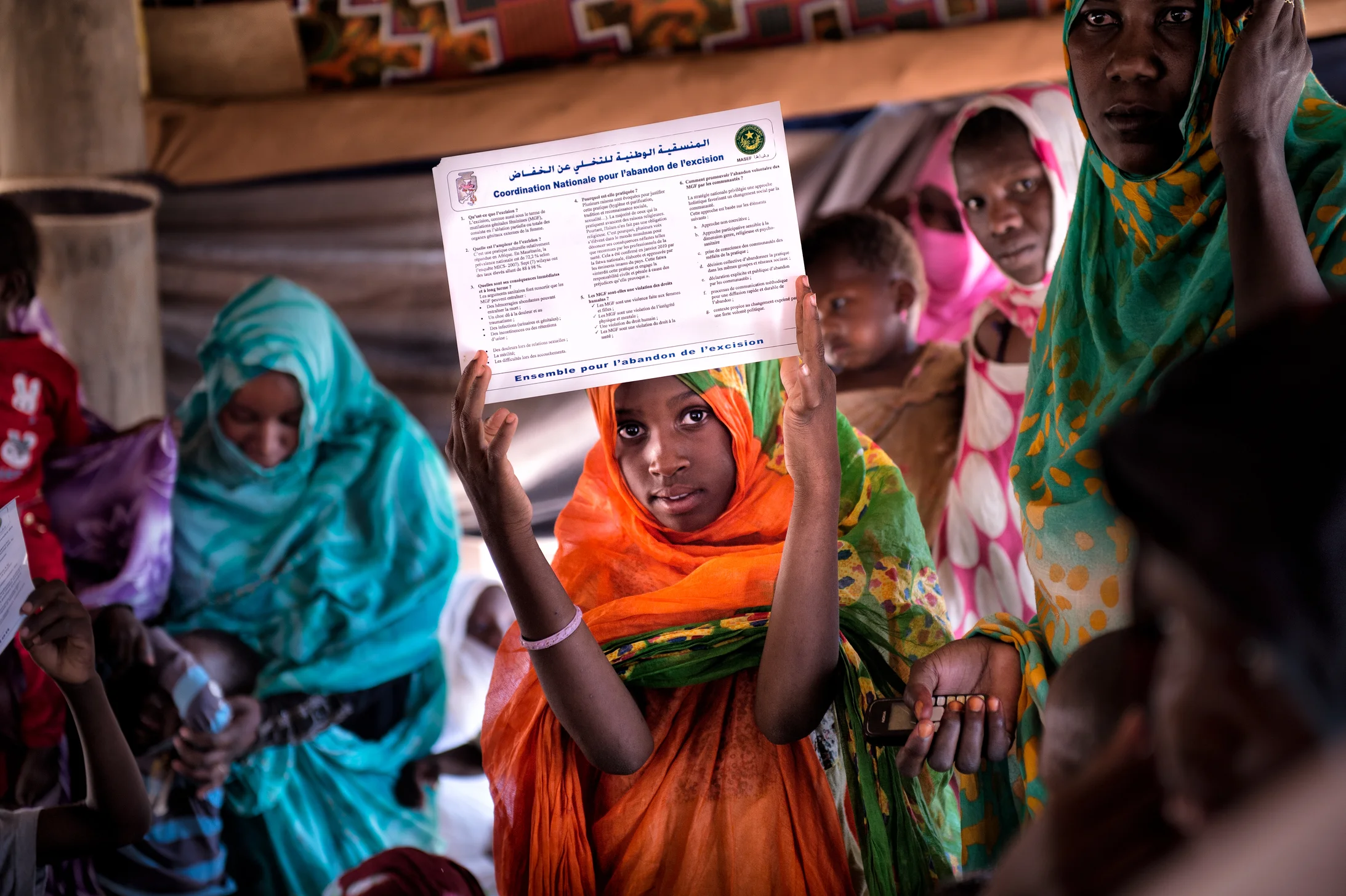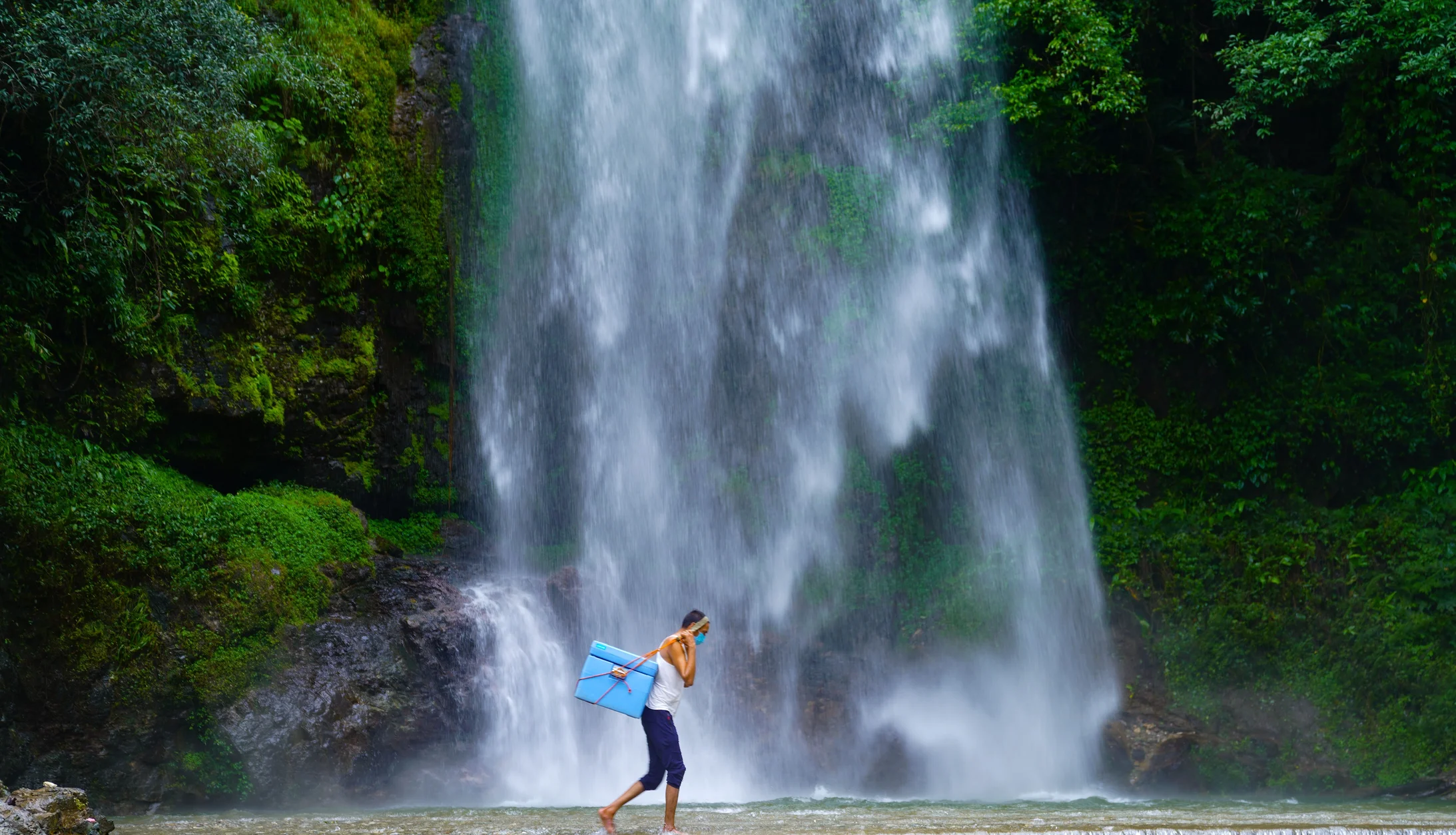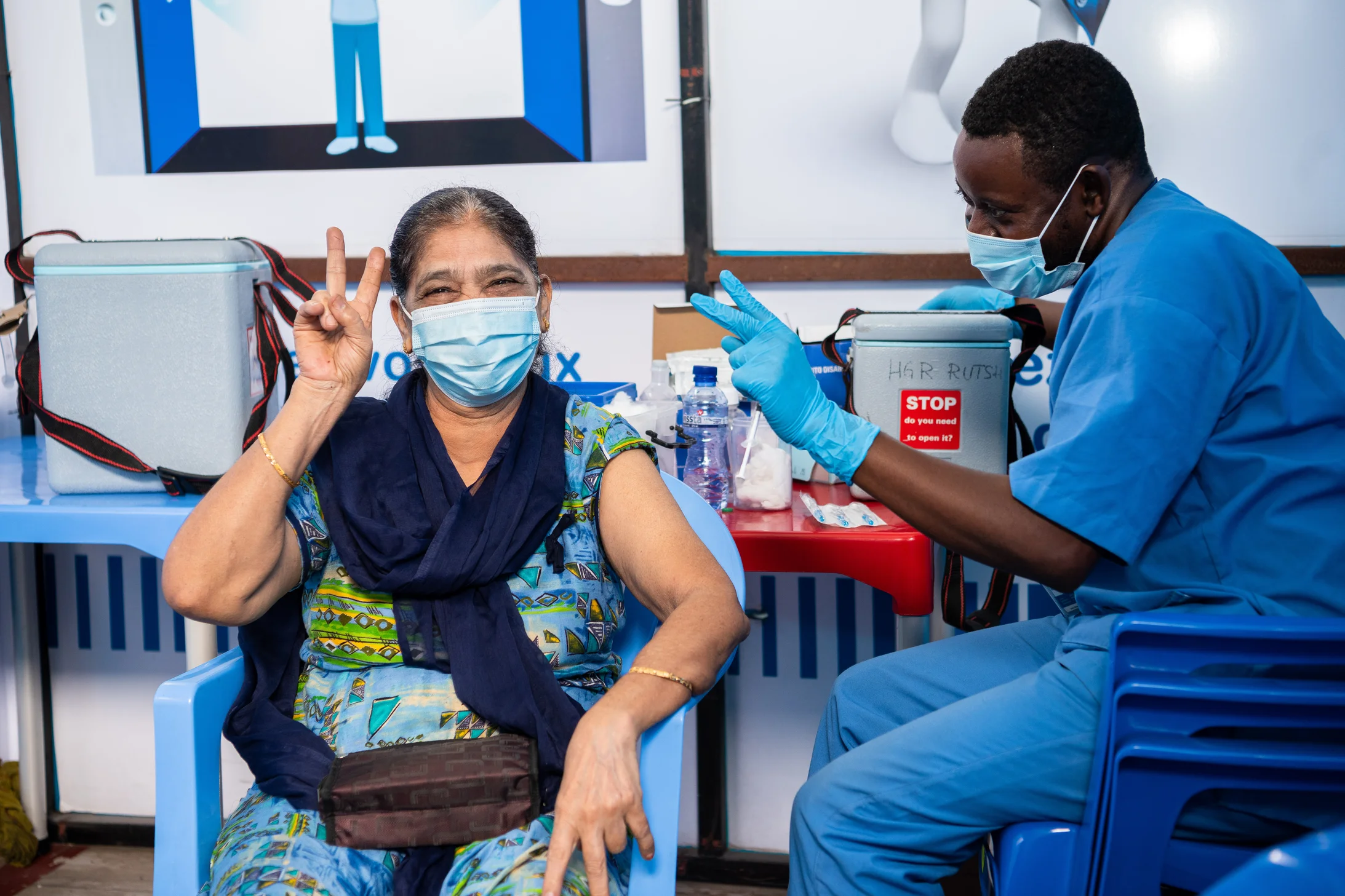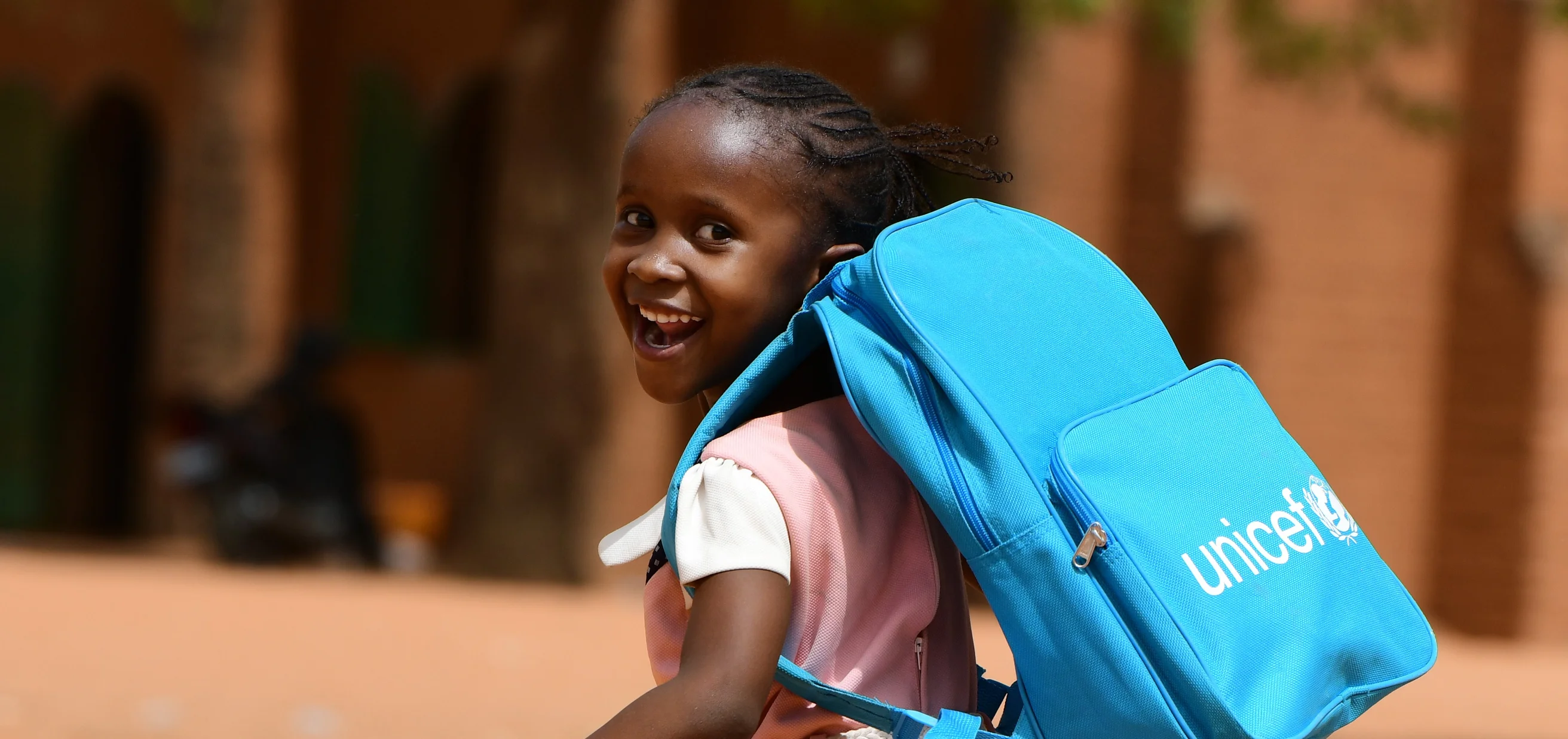
Annual Report 2021
Dear Friends of UNICEF
The situation in Ukraine is providing little cause for optimism at present, as was the case for the whole of 2021. The consequences of the COVID-19 pandemic, numerous humanitarian crises such as those in Afghanistan and Yemen, simmering conflicts and climate change are taking their bitter toll on the most vulnerable members of society:

“Families are sliding into poverty, and their children are being forced into child marriages out of economic hardship. Or they are having to drop out of school to feed their family.”
Climate change is depriving many people of their livelihoods, forcing them to leave their devastated homes and making them even more vulnerable as migrants, without shelter, access to education or healthcare. Under-five child mortality rates rose again last year. The mental health of children and young people, including those in Switzerland and Liechtenstein, has deteriorated dramatically.
All in all, UNICEF’s 75th anniversary did not feel like an occasion for celebration. However, UNICEF can look back on great success since 1946. In 2020, more children than ever survived to their first birthday. Rates of maternal mortality and child marriage were on the decline. More girls were attending school than ever before. Then came the pandemic. UNICEF never gives up. Our past success makes us confident and self-assured. Together with you at our side, we can face challenges with a solution-oriented approach and with the right tools.
None of it would be possible without the generous long-term support we receive from you, our donors. As a Champion for Children, you can now provide significant support to those children who are in most urgent need of help. Or you can invest in the future with a Inheritances & Legacies and enable children to grow up healthy and protected. However you would like to support us, every contribution is important.
Thank you very much for your generosity.
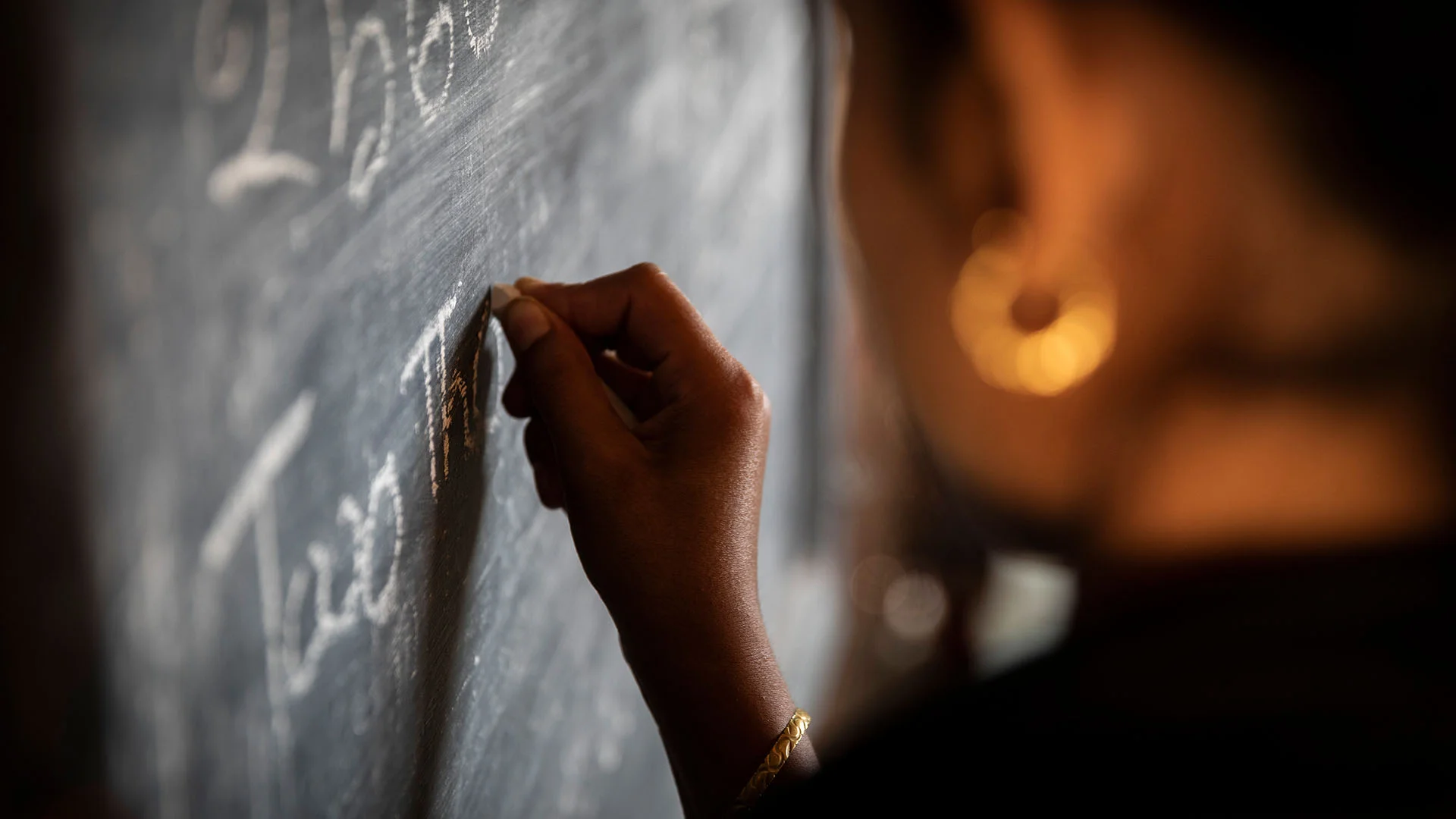
Facts and figures
UNICEF has a vision. The vision of a world that cares about the future of its youngest generation. A world where girls and boys can attend school and grow up healthy. Where exploitation, abuse and violence against children don’t have a chance. UNICEF works tirelessly every day to make this world a reality.

Active in 39 countries
UNICEF Switzerland and Liechtenstein supports programs in the areas of survival and development, education, child protection and emergency relief in 39 countries. It also supports global and regional aid and research programs.
Selection of countries that UNICEF Switzerland and Liechtenstein supported in 2021:
A - UNICEF Headquarters in New York, United States
- Birth registration and global
supported programs:
B - UNICEF Office of Research - Innocenti, Italy
- Innovative educational research
01 - Brazil - Star Weeks - education
02 - Afghanistan - Survival relief
03 - Haiti - Earthquake relief
04 - Yemen - Survival relief
05 - Middle East - Winter relief
06 - India - COVID-19 emergency relief
07 - Madagascar - Survival
08 - Ethiopia - Malnutrition
09 - Nepal - Kangaroo Mother
10 - Malawi - Solar water pumps
11 - Guinea - Fight against female genital mutilation
12 - Bolivia - Child protection
UNICEF also operates initiatives to strengthen children’s rights in Switzerland and Liechtenstein and advocates for these rights.

Global learning crisis
75 years of UNICEF
August 30, 2021, Bundesplatz, Bern. UNICEF Switzerland and Liechtenstein drew attention to the global learning crisis with an installation made of 600 UNICEF backpacks. 18 months on from the school closures caused by the COVID-19 pandemic, as of last autumn 473 million school children still had no access to education. The appeal: “Get every child back in the classroom as soon as possible. Efforts to achieve this must be stepped up even more than before the outbreak of the COVID-19 pandemic. Support programs are needed to make this happen. The global learning crisis can only be overcome by working together.”
Providing as many children as possible with access to education is important. But teaching quality is also crucial. The deficits became even more apparent last year. Worldwide, the average effective schooling time is just 7.9 school years. There is a lack of well-trained teaching staff. Teaching materials are inadequate. Classrooms are overcrowded. As a result, an estimated 617 million children and young people did not reach the minimum requirements in reading and mathematics in 2021, even though two-thirds of them do attend school. The Bundesplatz campaign was a media success and raised awareness of the crisis among the Swiss population.
countries
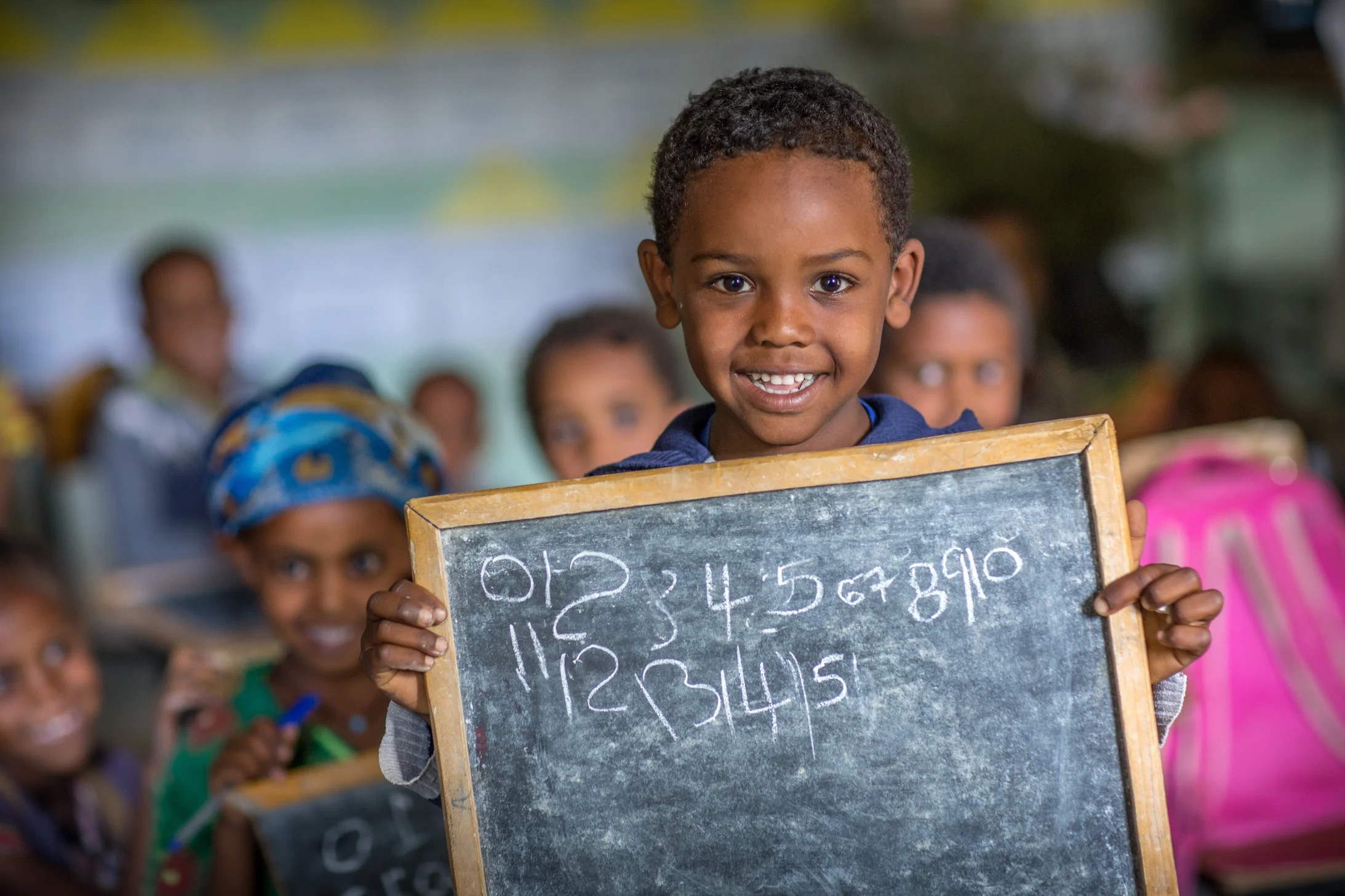
Changing the world with education
During its 75th anniversary year, UNICEF Switzerland and Liechtenstein focused its donations on educational programs.
In Uganda, for example, a program to promote early childhood education was implemented together with the Ministry of Education. In Ethiopia, parents of vulnerable children were educated about childcare practices. In Malawi, we continued to develop the skills of teaching staff. In Nepal, UNICEF supported an early childhood development program until December 2021.
Education holds the key to every child’s personal development, as well as being a catalyst for social mobility, equal opportunities and economic development within entire countries. It is the most effective investment against poverty.
Even before the COVID-19 pandemic, the global learning crisis had already excluded 258 million children from schools. Not being able to attend school meant that more than 370 million children did not receive a school meal last year. This is often their only source of regular, healthy nutrition. Children’s mental health is suffering. There has been an increase in the number of children dropping out of school. Gender equality is regressing. Child marriages will increase.

Star Weeks
Back to school in Brazil
“Children helping children” is the basic idea behind the Star Weeks campaign run by UNICEF Switzerland and Liechtenstein and the magazine Schweizer Familie. From November 20 until Christmas, girls and boys were able to get involved with creative fundraising activities to support children in need. In 2021, the topic was education in Brazil.
Star Weeks 2021 collected “back to school” donations for schoolchildren in Brazil. Hundreds of thousands of girls and boys in South America’s largest country are being denied their right to education. And due to the pandemic and resulting school closures, over 5.5 million children and young people had no access to school activities in 2020, either in print or digital form, in class or remotely.
Through the Star Weeks campaign, UNICEF is making a valuable contribution to ensuring that disadvantaged children between the ages of 7 and 12 can receive a good education and stay in school. This includes modern teaching materials that are adapted to the children’s age and can be used both in the classroom and for online teaching. The aim is also to get teachers to learn to deliver exciting lessons that children can participate in from home.

Star Weeks: Children helping children
Thousands of children again contributed fantastic, creative and fun ideas in 2021. They baked cakes, made Christmas decorations, knitted socks, painted candles, ran long distances for a good cause, performed a musical and sold hot punch on the street.

“Helping children is a matter of the heart for us. That’s why we support Star Weeks. It’s a joy to experience how much energy and creativity children, families and teachers put into helping children in need.”
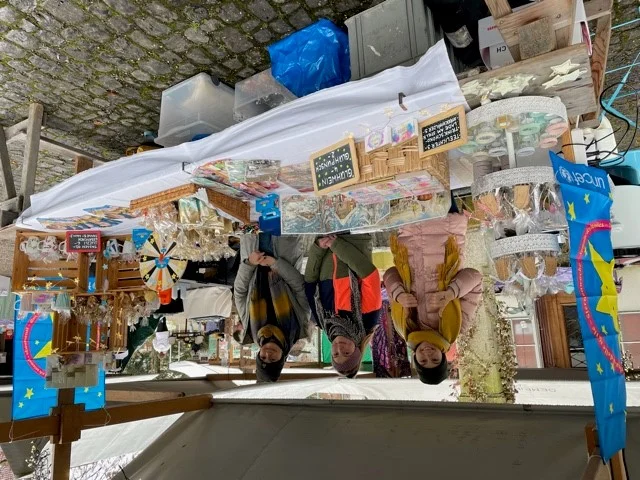
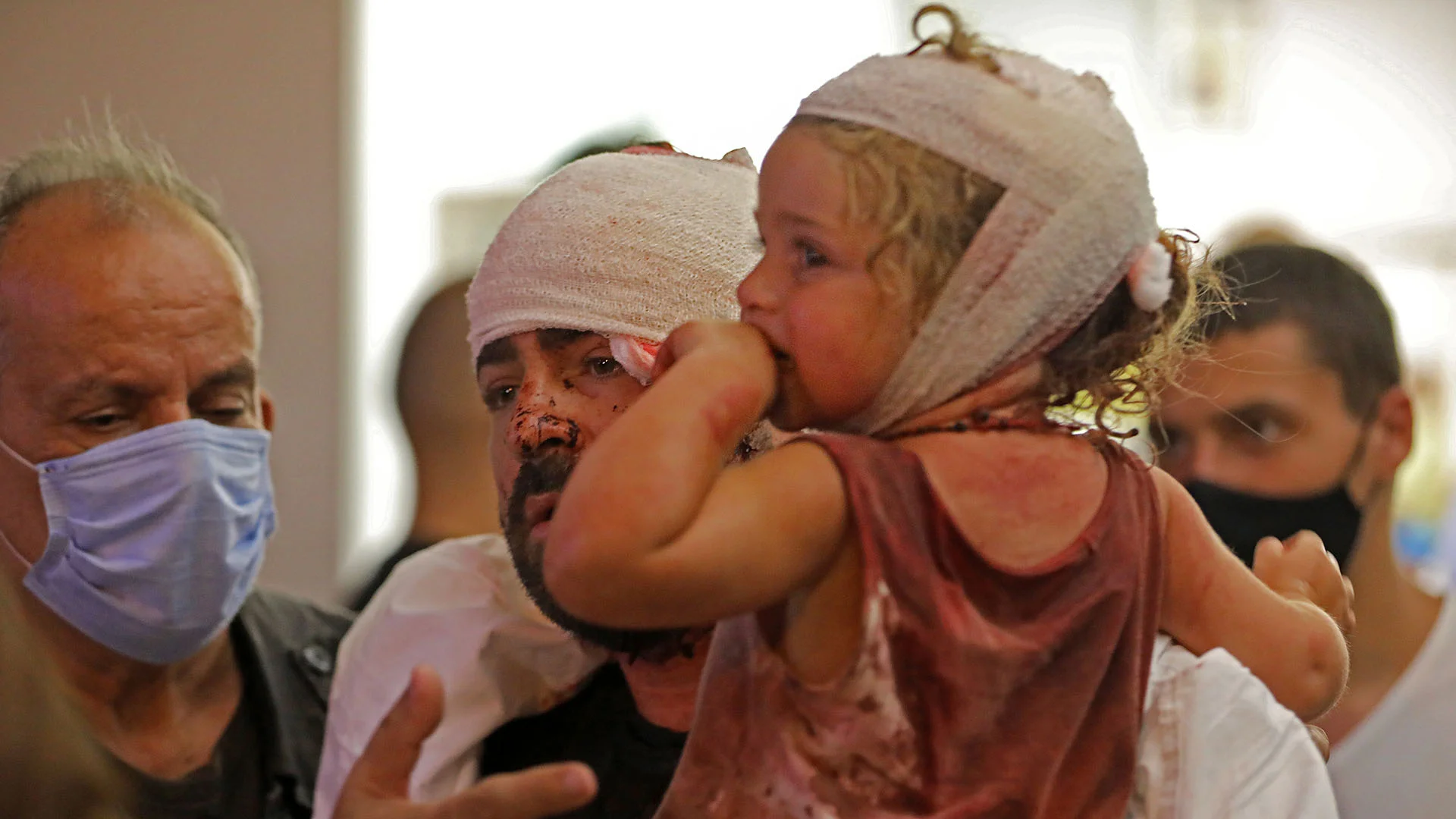
Emergency relief
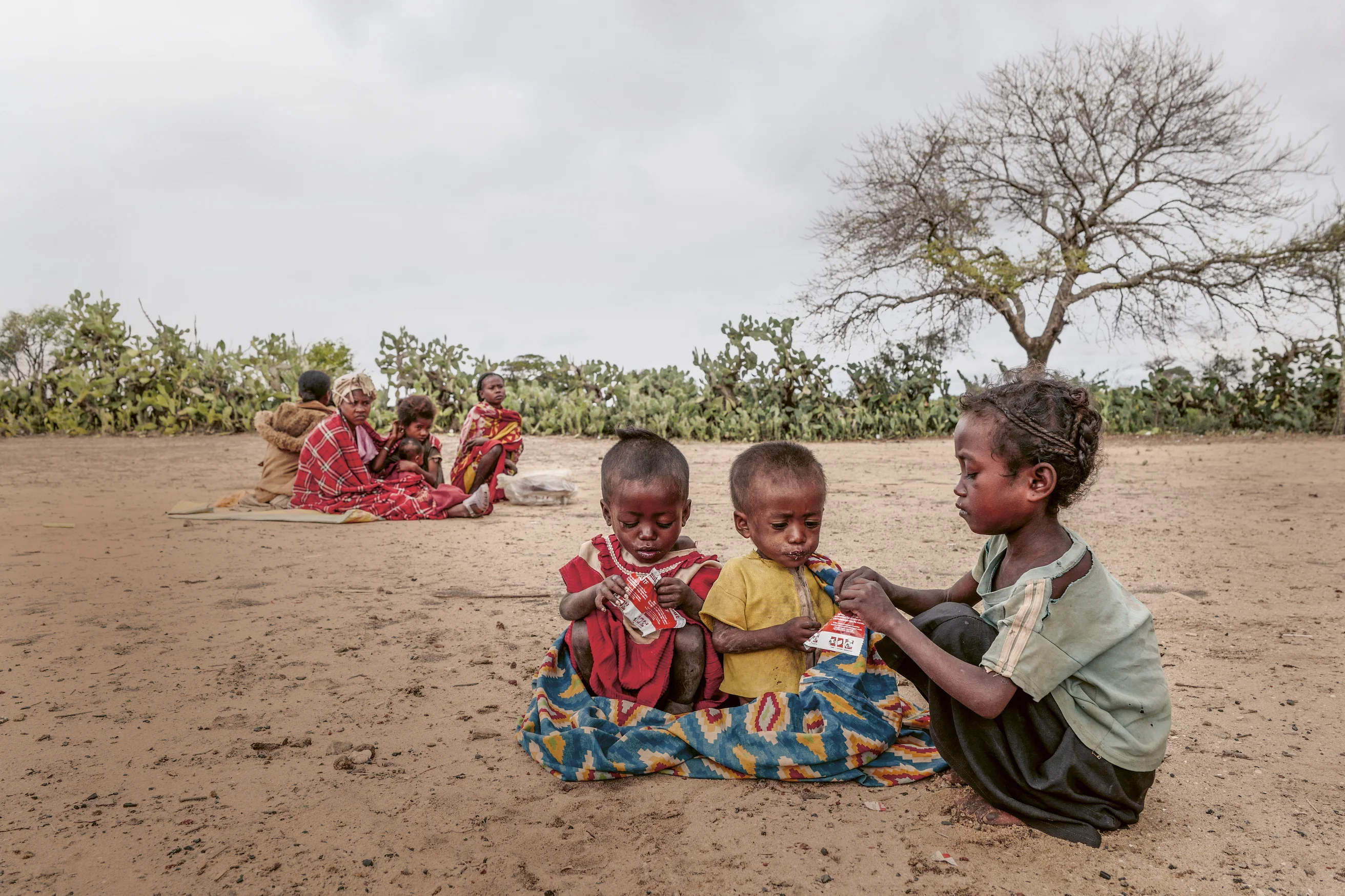
Madagascar hunger crisis
Ensuring survival
Vao (27) anxiously holds her son’s hand. He is severely malnourished. This has consequences for his recovery and, in the long term, for his development. The single mother of six lives in the Ambovombe district. Two of her children are suffering from severe acute malnutrition. She is not alone in her fate: 27 percent of children in this region are similarly affected.
“There is an urgent need to invest in the prevention and treatment of malnutrition in children to prevent the situation from becoming even more critical.”
Southern Madagascar has suffered four years of severe drought. In the last year alone, more than one million people on the island have been in urgent need of food and humanitarian aid. Many families have had to sell what little they owned to survive. Vao was a farmer. Now the only thing she can do is sell wood. Exhausted and hungry, she does not know how to cope with each new day that comes. Often the only source of food is wild cactus.

Health centers
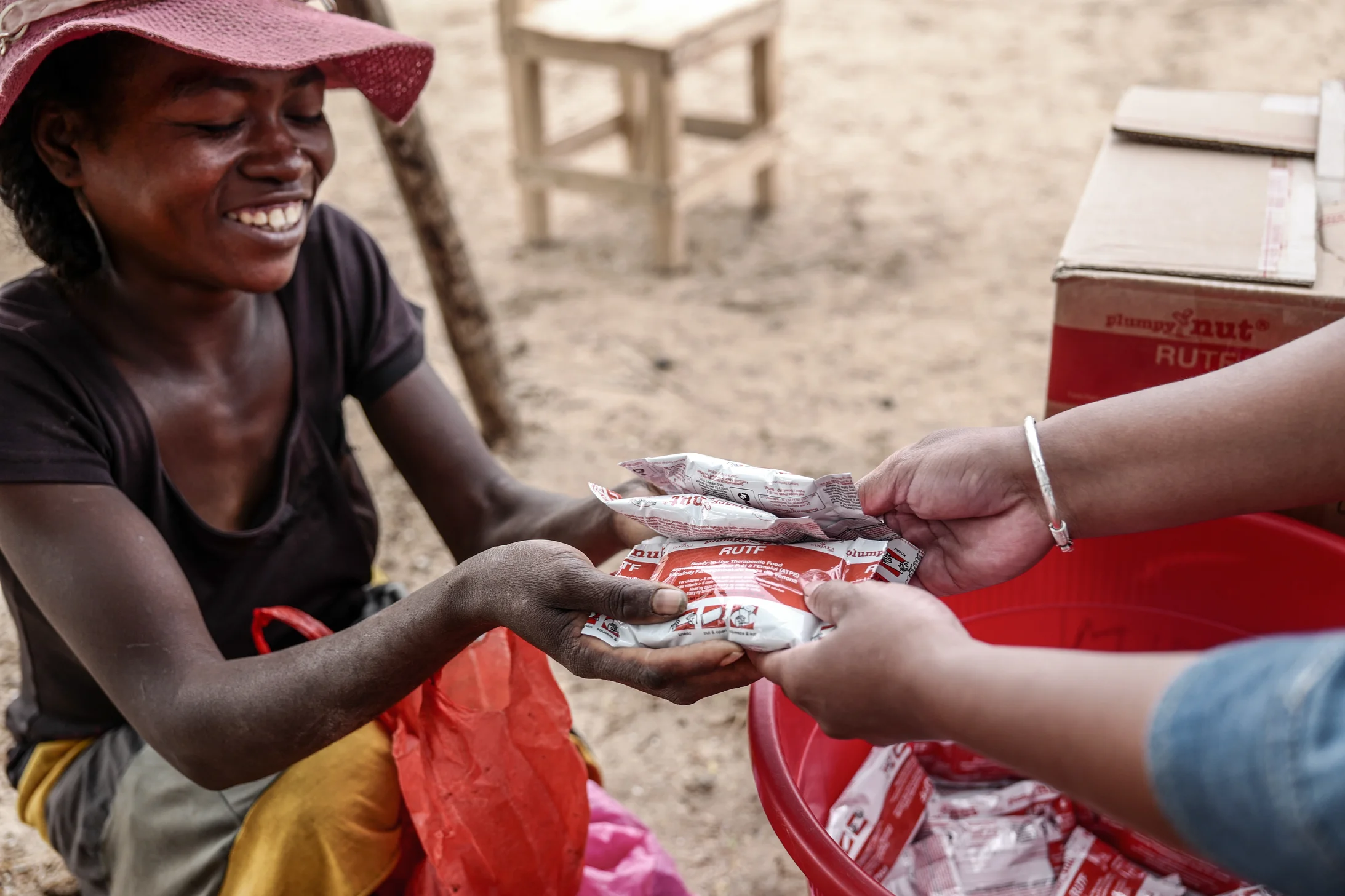
UNICEF is on the ground, and cares for malnourished children like Vao’s at the Ambohimalaza Health Center. They receive medical care and regain their strength thanks to a therapeutic peanut paste that is rich in calories and nutrients. Three volunteer nurses help at the health center.
“We’re now treating more than 200 cases of severe acute malnutrition,” explains Asaaze Angeline, the head nurse (August 4, 2021).
Vao also received additional packets of the nutrient-rich peanut paste. Families living at the health center also receive two 20-liter containers of water per day. Polluted water frequently leads to illness in children and is one of the causes of malnutrition. Ensuring access to clean water remains one of the key targets of UNICEF’s work in Madagascar.
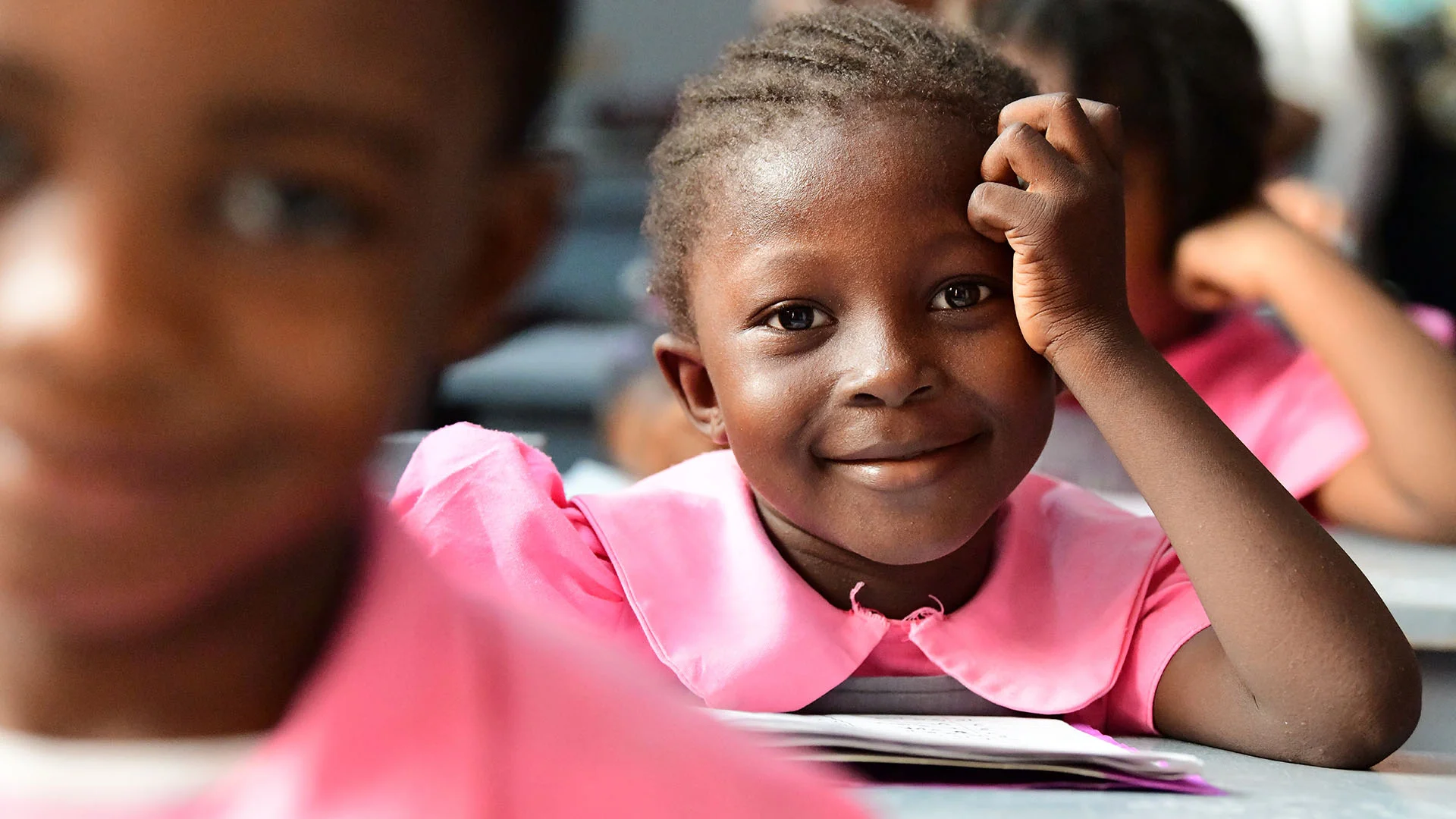
Programs
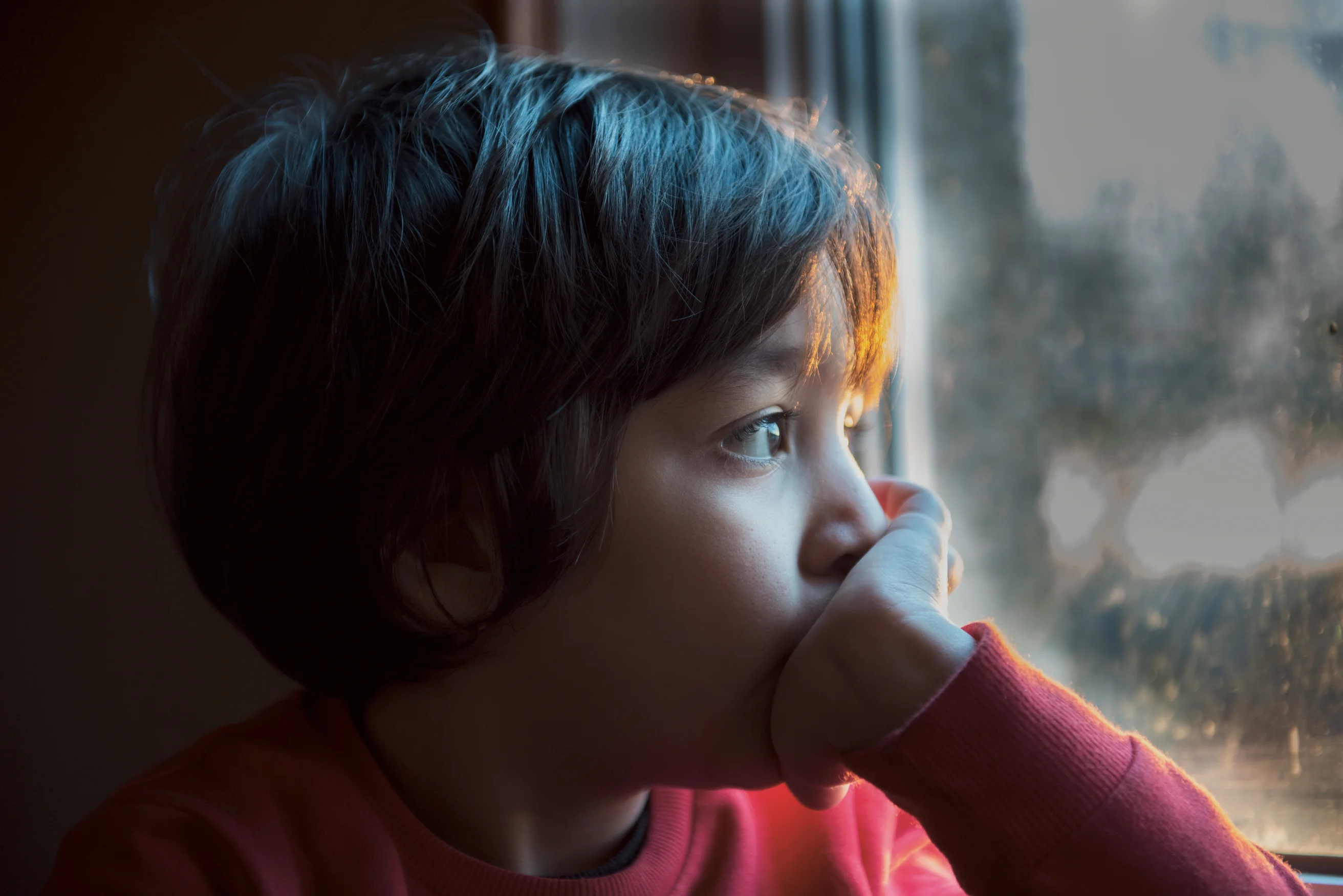
Mental health
How are you doing?
UNICEF’s report “The State of the World’s Children”, published last year, focused on young people’ mental health. 19 percent of European boys between the ages of 15 and 19 suffer from mental health disorders. The figure is 16 percent for girls. 9 million young people in Europe are living with mental health disorders, with more than half of cases related to anxiety and depression.

While adolescence may bring with it an increased risk of mental illness, it is also a crucial phase of life during which healthy behavior patterns as well as emotional and social learning develop. To reduce the increasing burden of mental health disorders, it is crucial to focus on young people’s mental wellbeing. Despite growing awareness of the negative impact, there are large gaps in investment, particularly in mental health support and prevention programs. In addition to expanding high-quality childcare, child education and family-friendly measures, UNICEF particularly recommends improving access to mental health support, at the regional level, in schools and online.
Together with its partner, the Z Zurich Foundation, UNICEF Switzerland and Liechtenstein has initiated a program that aims to support more than half a million young people and their caregivers in seven countries. A communication campaign is also intended to reach 30 million people worldwide over the next three years. The vision for this partnership is a world where every young person receives support in order to improve their mental wellbeing.
“Positive mental health helps us to think, learn, and build our lives. But for many young people, psychosocial stress interferes with their daily lives, negatively impacts their health, and prevents them from thriving.”

Initiatives
Mental health among our young people
Between spring and summer 2021, an online survey was conducted on the mental wellbeing of young people. 1,097 young people between the ages of 14 and 19 from Switzerland and Liechtenstein participated in the survey. The results show that action is clearly needed.
The study, which was commissioned by UNICEF with the support of the Z Zurich Foundation and Zurich Switzerland, not only reveals worrying results but also clearly shows that young people often keep their problems to themselves. So the question is not only whether enough is being done for young people, but above all whether the right things are being done. The study aimed to identify risk and protective factors for the mental health of young people in Switzerland and Liechtenstein. The results show more than clearly that action is needed at a wide variety of levels. In order to strengthen young people’s mental health over the long term, we must invest first and foremost in awareness and prevention. And services must be developed with and for young people.
These figures are a wake-up call. We have to act. Together. And at all levels.

Child-Friendly Cities Initiative
UNICEF Switzerland and Liechtenstein supports communities in their efforts to become more child-friendly through a well-founded process. The direct involvement of children and young people is key.
The Convention on the Rights of the Child guarantees all children a say in matters that affect them. Adults must listen to children’s opinions and take them into account in the decisions they make. For decision-makers, having children and young people participate also presents a great opportunity. It enables them to take measures based on children’s needs that can genuinely improve the environment in which they live. The right to participation is at the heart of the Child-Friendly Cities Initiative.
“Including children and young people is very important for the implementation of municipal projects. They can play an active role in shaping their present and future, and discover that their participation can make a difference.”
Child-Friendly City is a label awarded by UNICEF Switzerland and Liechtenstein to communities that are committed to implementing children’s rights. The initiative has gained momentum in recent years, not least thanks to increased cooperation with the cantons. In 2021, Knonau in the canton of Zurich became the 50th municipality to be awarded the label. For the municipalities, the collaboration with UNICEF Switzerland and Liechtenstein is paying off. An evaluation of the initiative showed that the interests of children and young people have been given a higher priority in municipal policy since its introduction, that opportunities for participation have increased over time, and that the municipalities are investing more in the youngest generation. As a result, communities are strengthened and action is taken in a pragmatic and future-oriented way.
50
Companies have a responsibility toward children
Switzerland and Liechtenstein. UNICEF works to ensure that companies in Switzerland and Liechtenstein are aware of their multiple points of contact with children and their impact on children’s rights.
In 2021, the focus was on UNICEF’s commitment to effective legislation on human rights due diligence for companies in Switzerland, co-leadership of the Swiss Platform for Sustainable Cocoa’s child labor working group, and the development of topics related to making companies more family-friendly. UNICEF also became a member of the multi-party support group for the National Action Plan on Business and Human Rights in Switzerland in summer 2021. Within this group, UNICEF represents Swiss civil society and also advocates for greater consideration of children’s rights in measures relating to corporate responsibility from a human rights perspective.
World Children’s Day in Liechtenstein
Action Go Blue. To mark World Children’s Day on November 20, Liechtenstein supported UNICEF’s #goBlue campaign by having the government building in Vaduz illuminated in blue light from Saturday to Sunday.
In supporting the campaign, Liechtenstein underlined its commitment to implementing the Convention on the Rights of the Child and raised awareness of children’s rights. This commitment was reinforced by a one-hour visit to Balzers Primary School by the Prime Minister Daniel Risch. As part of UNICEF Switzerland and Liechtenstein’s #meinezukunft (my future) children’s rights campaign, fourth-year pupils told the prime minister about their wishes and ideas for a safe and healthy future in Liechtenstein and discussed these with him.
“As we all know, children don’t have the loudest voices, which makes it all the more a matter of personal concern to me that they are not only heard, but also taken seriously.”
COVAX
Equitable global access to COVID-19 vaccines.
UNICEF is a key partner in the Act-A global vaccination alliance, and is involved in the COVAX vaccine distribution program in particular. The goal of the alliance is to ensure equitable and affordable delivery of COVID-19 vaccines worldwide.
UNICEF was already the largest buyer of individual vaccines even before the outbreak of the pandemic. With COVAX, UNICEF is now also working to ensure that at least 70 percent of the population in low-income countries are fully vaccinated against COVID-19. The main task is the logistics involved in transporting vaccines, syringes and safety boxes. This requires the creation of an unbroken cold chain right into the most remote regions. Logistics staff need to be trained, while health workers and the population at large need to be made aware of the importance of vaccination. In 2021, UNICEF supplied more than 941 million doses of COVID-19 vaccine to 144 countries. Organizational and financial assistance was provided to 130 countries to ensure the vaccines were actually delivered. Further efforts, especially humanitarian aid, are needed in order to end the pandemic. The goal of the COVAX global vaccination program is to protect people in low-income countries by delivering 4.1 billion doses of vaccine by the end of 2022. UNICEF Switzerland and Liechtenstein has been supporting COVAX since the beginning of last year.
Fighting coronavirus together
The COVID-19 pandemic has shaken the lives of children and their families around the globe. UNICEF worked on the front lines in 2021.
Coronavirus is still spreading. While rich countries have been able to secure vaccine doses early, poorer countries have been left behind. The rapid spread of new COVID-19 mutations is further exacerbating the situation. Children run the risk of being among the biggest victims in this pandemic. The consequences affect their education, health, nutrition and wellbeing. The virus threatens girls and boys already weakened by war, disease, hunger and poverty, as their survival depends on a functioning health system, life-saving food, clean water and medical care. The only way out of the pandemic is to bring COVID-19 under control globally.
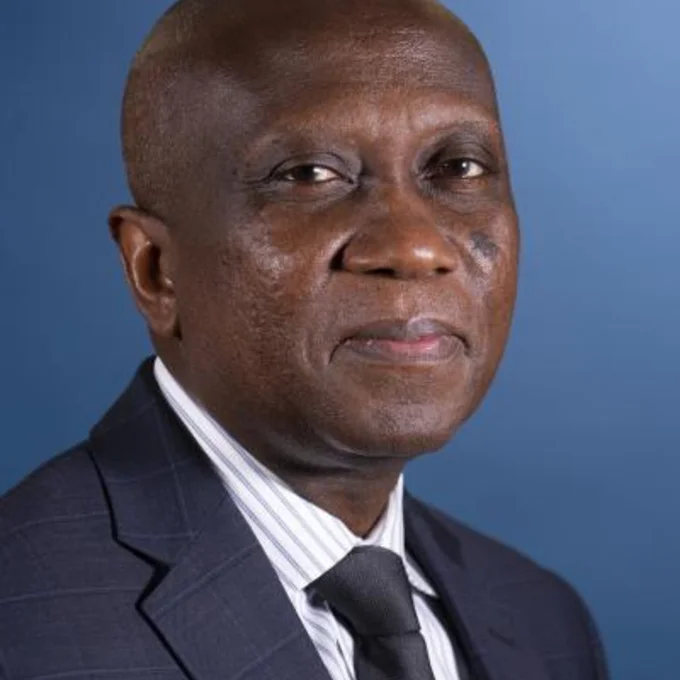
“The scenes we are witnessing in South Asia are unlike anything our region has seen before.”
The impact of COVID-19 threatens children’s survival and health. 80 million children under the age of one have not yet received life-saving routine vaccinations. Families have lost their source of income. Approximately 150 million more children have fallen into poverty. Family violence is on the rise. Early marriages are on the increase. The learning crisis is worsening as classes continue to be canceled and children do not adequately catch up on the learning they have missed.

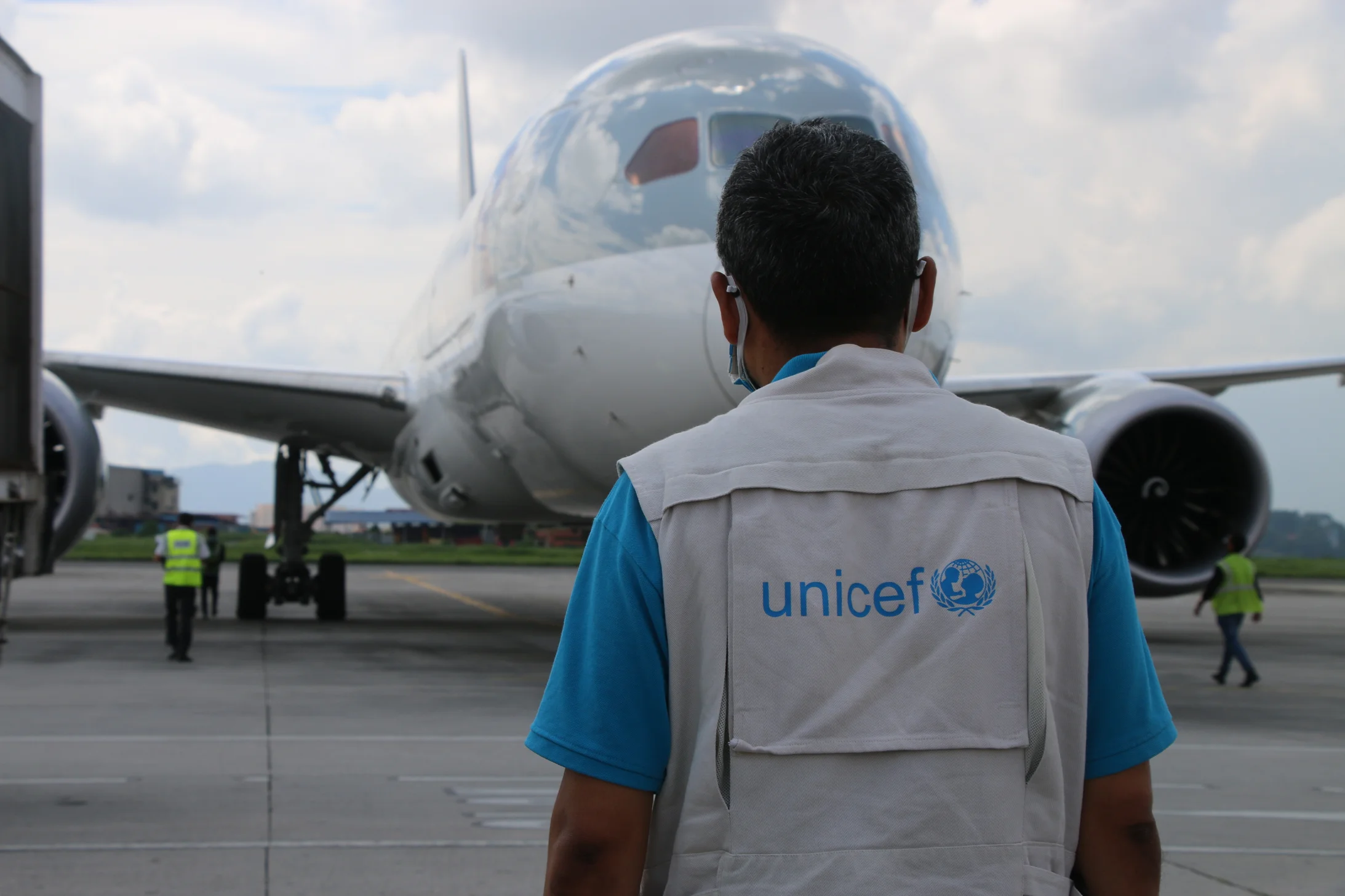
This aid has only been possible thanks to individual donations from many people in Switzerland and Liechtenstein, along with large donations from the Government of the Principality of Liechtenstein, the Benecare Foundation, Sulzer AG, the Swiss Re Foundation and the Z Zurich Foundation.
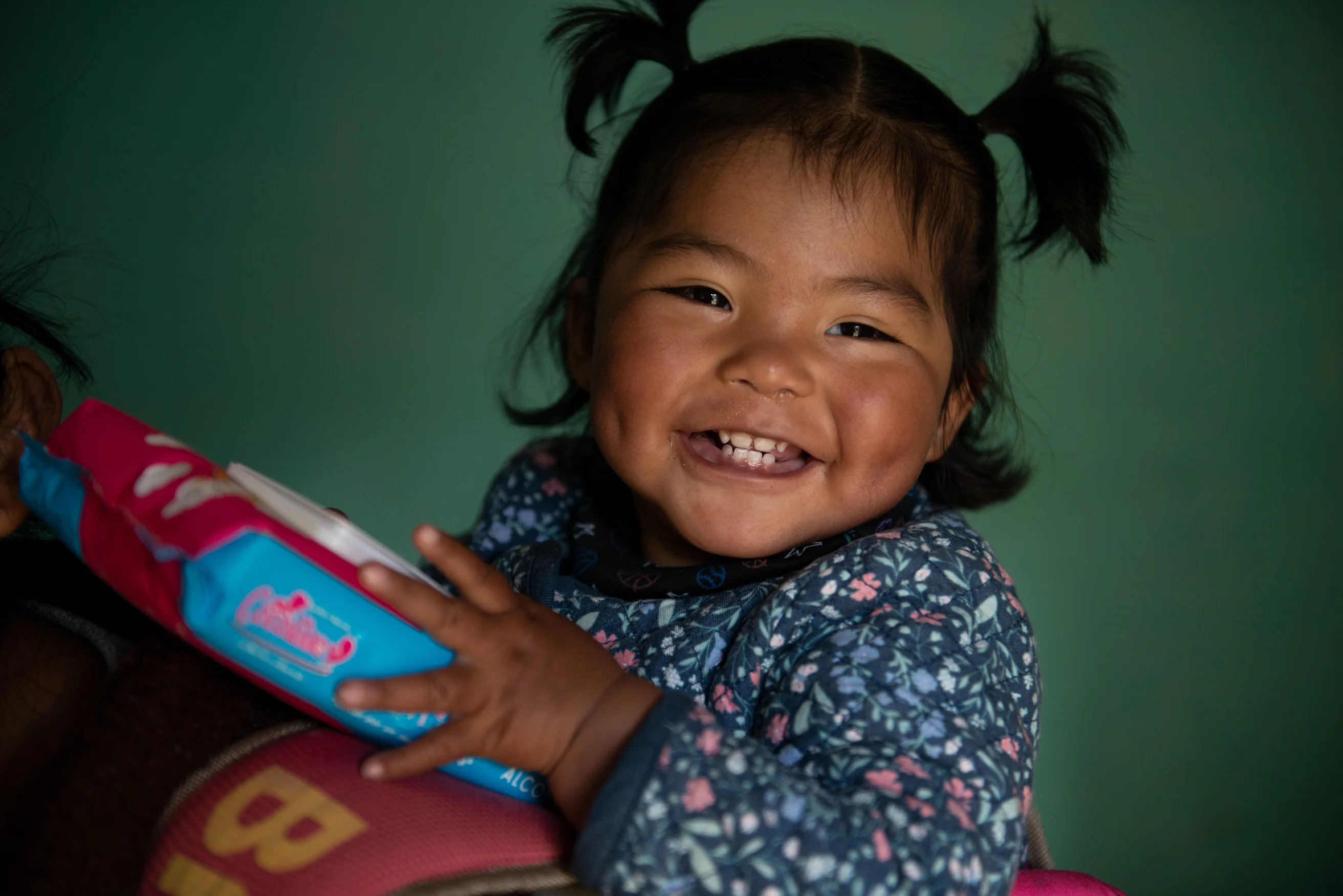
Bolivia
Child protection
Forced to drop out of school, a single mother, still a child herself, hardly any money to survive and dependent on herself alone. 16-year-old Carla was desperate. Then came the COVID-19 pandemic.


Carla was 13 years old when her parents died. She dropped out of school and has been fending for herself and her and her daughter’s livelihood ever since. Then came the COVID-19 pandemic and the lockdown. During that period, her partner left her for another woman. She traveled distances of more than 20 km a day to sell her sweets. Her existential fears brought on depression. She began to self-harm and had suicidal thoughts. Her last hope was UNICEF’s Familia Segura emergency hotline. Since then, she has been receiving psychological support. She has regained the courage to face life. Her wish is that one day, her daughter will be better off than she is and will be able to go to school.
The hotline started in 2020. The free service is aimed at children, young people and women who need psychological help. By the end of 2021, the hotline had received 50,982 calls. The timing could not have been better, as the outbreak of the pandemic has dramatically increased the need for psychological support. According to a recent study by the Institute of Behavioral Research at the Catholic University of Bolivia, one in five people in Bolivia suffer from some form of psychological stress.
Bolivia invests only 0.2 percent of its national health budget in mental health services. Since 2019, UNICEF Switzerland and Liechtenstein has been supporting the prevention of violence against children and young people. Domestic violence, especially violence against children, is still widespread in Bolivia. Children’s right to protection is violated on a daily basis. Our measures support vulnerable families in preventing violence. They strengthen the child protection system in Bolivia and improve girls’ and boys’ access to services that offer them protection and help.
The goal is to protect children from violence. When violence does occur, the child protection system should be able to identify affected children at an early stage and provide them with appropriate support.
Balance sheet & operating statement
You make help possible at all times.
Disasters can only be predicted to a limited extent. UNICEF is active in over 150 countries. This enables it to prepare for events, to be on the ground more quickly when a disaster hits, and to continue to help even when others have long since moved on. This holistic support is only possible thanks to donations made without a specific purpose. Thank you for your trust in UNICEF




